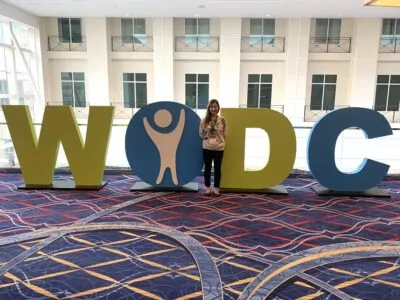
Rochelle Matheson represents VeDA at the World Orphan Drug Congress
“As we know, the rare disease area has historically been distinguished by unique challenges, but also incredible triumphs. Particularly because of advancements in precision medicine that have not been seen elsewhere within healthcare….But what I know unites all of us in this room, is that shared commitment to advancing care for individuals with rare diseases. One person at a time, and an entire community.”
– Shannon Resetich, Global Franchise Head, Rare Diseases, Sanofi Genzyme
World Orphan Drug Conference (WODC)
Back in August of this year, I had the honor of attending the World Orphan Drug Congress as a representative of the Vestibular Disorders Association. This conference, coordinated in part by the National Organization of Rare Diseases (which VeDA is a member of), brings together those in the pharmaceutical and research worlds to discuss their work in rare disease, and invites those who advocate for specific rare diseases to learn of the work being done.
Making Connections and Representing Vestibular Patients
Many of us who suffer from vestibular disorders are frustrated with the lack of speed in which we receive a diagnosis and appropriate medication (if needed), myself included. It took nearly 3 years and many specialists for me to receive a correct diagnosis, and a few more years to find the therapies that helped manage my vertigo best. If I’m being honest, I was skeptical to hear from pharmaceutical and research companies about their work on rare diseases. How are these large companies that are concerned about their profits truly helping those with rare diseases, vestibular disorders specifically? Do they care about the small population of rare disease patients?
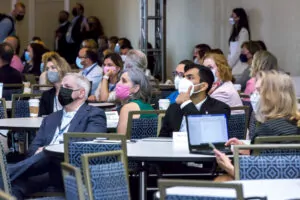
Over the course of 2 days attending this conference, I heard from many researchers, geneticists, and drug developers about what they’re doing in the rare disease world. I was incredibly surprised, to say the least, and left feeling very encouraged. I heard the passion from many individuals who had been touched by rare diseases themselves, and passion from those working to help those with rare diseases.
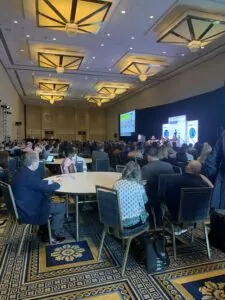
I heard from speakers who, despite the odds set against them, pushed for the funding for the development of a new, “orphan” drug. And of their joy when clinical trials proved fruitful to a patient with a rare disease.
I connected with many attendees who worked in various industries: pharmaceuticals, medicine, and fellow rare disease 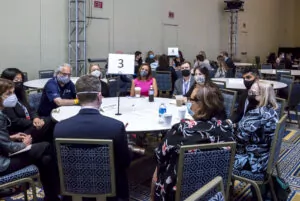 advocates. Sitting in roundtable discussions with members of other non-profit organizations representing other rare diseases and hearing of their joys and struggles encouraged me as well. It’s sometimes easy to forget that vestibular disorders are just a small number of so many rare diseases– but we all deserve to have medicine and pharmaceutical companies on our side.
advocates. Sitting in roundtable discussions with members of other non-profit organizations representing other rare diseases and hearing of their joys and struggles encouraged me as well. It’s sometimes easy to forget that vestibular disorders are just a small number of so many rare diseases– but we all deserve to have medicine and pharmaceutical companies on our side.
Best of all, I got to share about vestibular disorders and share some information with a few people that I chatted with. After explaining what the Vestibular Disorders Association is and what vestibular disorders are, a few people remarked that their spouse or family member experienced unexplained vertigo. I encouraged them to have their loved one seek a 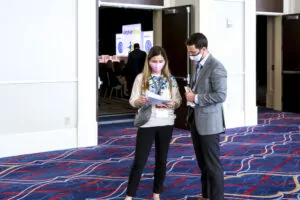 specialist and request balance testing to start the process. Though I wasn’t there to be an educator specifically, I was so happy I could share about vestibular disorders and educate many others on their existence.
specialist and request balance testing to start the process. Though I wasn’t there to be an educator specifically, I was so happy I could share about vestibular disorders and educate many others on their existence.
On a personal note, I found the large hallways, busy carpet, and high ceilings to be a bit daunting, but I often hugged the wall and took breaks when needed to mitigate my symptoms as much as possible. It was difficult but doable!
By Rochelle Matheson, VeDA Ambassador